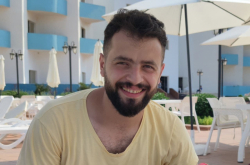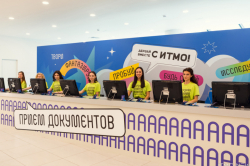Winners of Web of Science Awards in Russia are chosen based on the Highly Cited Researchers concept developed by the company Clarivate Analytics. Its method involves identifying the world’s most significant publications on natural, STEM and social sciences of the recent decade. The latest list of such publications includes 3,400 articles in 21 areas of research.
“The Russian version of Web of Science Awards uses the same Highly Cited Researchers concept, but is narrowed down to analyze only Russian researchers,” – explains Pavel Kasyanov, Clarivate Analytics’ bibliometrics expert – “This is the fourth time these awards are presented, and our methodology has proven itself: the results of Web of Science Awards can be referred to as dynamic. Each time, we “discover” new names in Russian science, as our method prevents the possibility of seeing the same “elders” of science in each year’s list just because they’d gotten a high H-index some decades ago. We only evaluate those who contribute to modern science right now.”
In the meantime, the overall number of highly-cited publications in Russia is growing rapidly – there are 1,600 of them this year compared to last year’s 1,400. All of the articles indexed by the Web of Science Core Collection are included in the evaluation; the only exceptions are articles written by large groups of authors.
Professor Yuri Kivshar was included in the list of most often-cited Russian scientists with a total of 4 highly-cited articles (Russia-affiliated). Prof. Kivshar has actually published 26 such “superarticles”, which is a very high number. Among them are those that he co-authored with scientists from ITMO University – Pavel Belov, Head of the International Center for Nanophotonics and Metamaterials, and scientists Alexey Slobozhanyuk, Mikhail Rybin, Stanislav Glybovski, and others.
"My work at ITMO University is a huge part of my career: right now, I believe, I work with the scientists here in St. Petersburg than I do with those in Australia. It is also a partnership that offers great opportunities; ITMO University has a lot of young, talented scientists, which means a great number of new projects and research," – says Prof. Kivshar – "I've co-authored numerous articles with scientists from ITMO, but I believe the most significant is the one we published in Optics Express in 2012 with Alexander Krasnok, Pavel Belov and Andrey Miroshnichenko, which served as a foundation to an all-new field of study."
In the past ten years (starting with 2008), the number of Prof. Kivshar’s publications indexed by the Web of Science Core Collection has amounted to 696 articles, 52 of which were published in 2017. The total number of citations in that period is 16,684 (14,712 sans self-citations). Yuri Kivshar’s h-index is 61, one of the highest among Russian physicists.
The full list of winners (in Russian) can be found here.
Web of Science is a search platform that utilizes various databases of publications in scientific journals and patents. The company was previously owned by Thomson Reuters, and was acquired in October 2016 by Clarivate Analytics.





